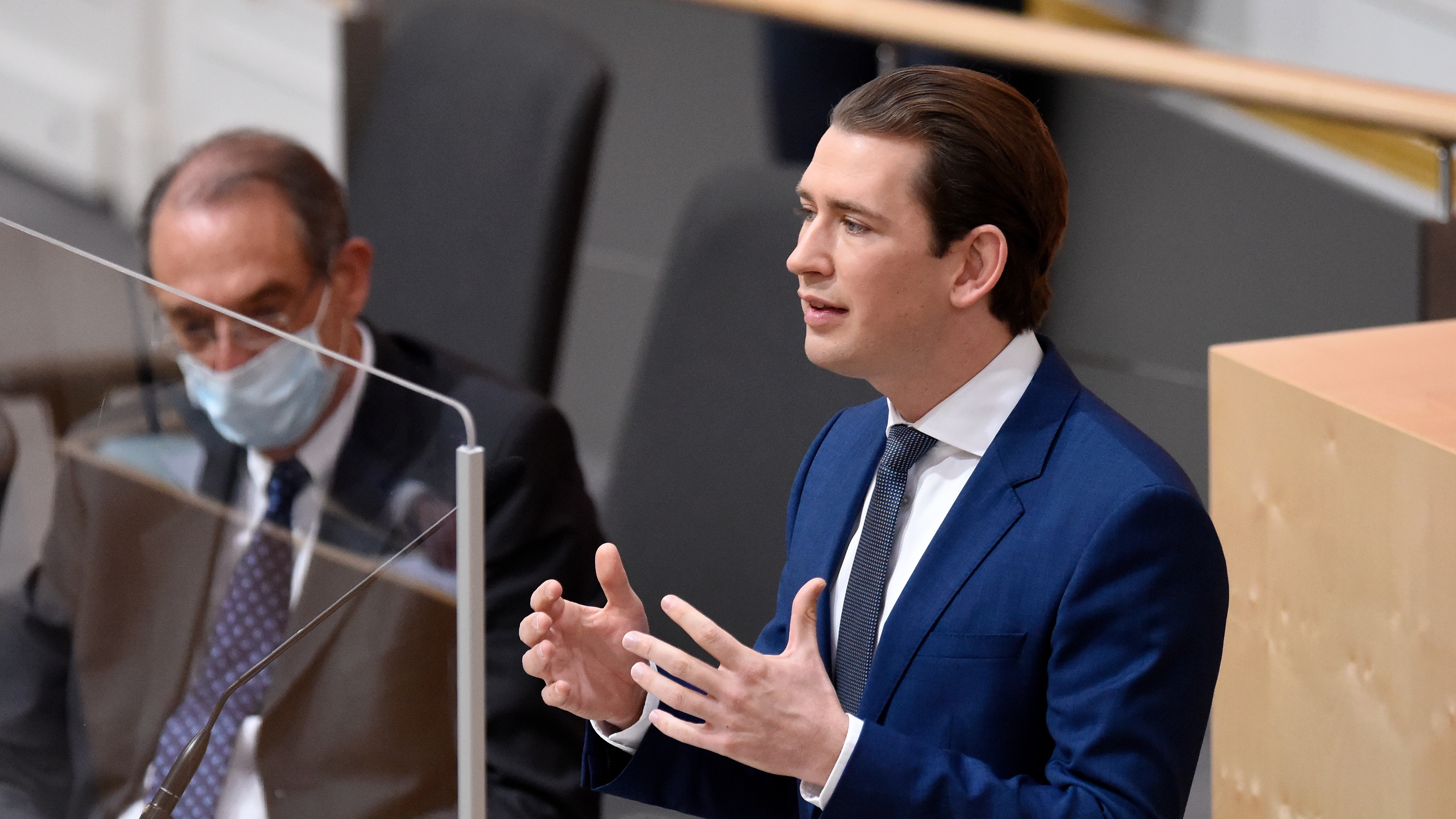Central European leaders blast EU over vaccine distribution
Commission points out that system for sharing doses has been ‘well known for months’

A free daily email with the biggest news stories of the day – and the best features from TheWeek.com
You are now subscribed
Your newsletter sign-up was successful
Austrian Chancellor Sebastian Kurz and and his counterparts in Latvia, Bulgaria, Slovenia and the Czech Republic have been slapped down after accusing the European Commission of foul play in Covid vaccine distribution.
Kurz and his allies fired off a letter to the Commission on Saturday calling for a summit to be held “as soon as possible” to discuss jabs allocation, following the “recent” discovery that doses were not being distributed in quantities proportionate to each member state’s population size.
The letter repeats claims made by Kurz at a press conference in Vienna on Friday that “there are indications that there was also a so-called bazaar, where additional agreements were made between member states and pharmaceutical companies”.
The Week
Escape your echo chamber. Get the facts behind the news, plus analysis from multiple perspectives.

Sign up for The Week's Free Newsletters
From our morning news briefing to a weekly Good News Newsletter, get the best of The Week delivered directly to your inbox.
From our morning news briefing to a weekly Good News Newsletter, get the best of The Week delivered directly to your inbox.
The Commission made short shrift of the complaints, however, issuing a response that amounts to “don’t blame us”, according to Politico.
In a statement, the EU’s executive branch said that the vaccine programme had “followed a transparent process” and that member states had agreed to add “flexibility” to allow for “different distribution of doses, taking into account the epidemiological situation and the vaccination needs of each country”.
To put that another way, says Politico, the statement “restated what has been well known for months - that some countries didn’t sign up for all the vaccines they were entitled to, and others bought up the extra doses”.
The site’s Brussels Playbook notes that the Commission was “polite enough not to mention” that if Kurz was unhappy with the agreement, he could “call his own envoy on the EU’s steering board for the joint procurement”, since “an Austrian government official is in fact the co-chair of the board”.
A free daily email with the biggest news stories of the day – and the best features from TheWeek.com
The spate has done little to improve Kurz’s standing at home, with Austrian newspaper Der Standard describing his outburst as “quite remarkable” given that “the fact that the vaccine is not distributed one-to-one in the EU according to the size of the population is not new”.
As commentators point out, France and Germany have been able to accelerate their jab programmes after buying extra supplies of the more expensive Pfizer and Moderna vaccines.
But other nations including Austria bet big on the Oxford-AstraZeneca vaccine, so delays in the pharmaceutical giant’s deliveries have set back their campaigns.
In a further blow to faltering vaccination rollouts, the Netherlands and Ireland on Sunday joining the growing list of EU countries to suspend the use of the Oxford jab over blood clot fears.
AstraZeneca responded with a statement saying there was “no evidence” that the vaccine increases the chances of a thrombotic event - a verdict also reached by the European Medicines Agency (EMA).
Joe Evans is the world news editor at TheWeek.co.uk. He joined the team in 2019 and held roles including deputy news editor and acting news editor before moving into his current position in early 2021. He is a regular panellist on The Week Unwrapped podcast, discussing politics and foreign affairs.
Before joining The Week, he worked as a freelance journalist covering the UK and Ireland for German newspapers and magazines. A series of features on Brexit and the Irish border got him nominated for the Hostwriter Prize in 2019. Prior to settling down in London, he lived and worked in Cambodia, where he ran communications for a non-governmental organisation and worked as a journalist covering Southeast Asia. He has a master’s degree in journalism from City, University of London, and before that studied English Literature at the University of Manchester.